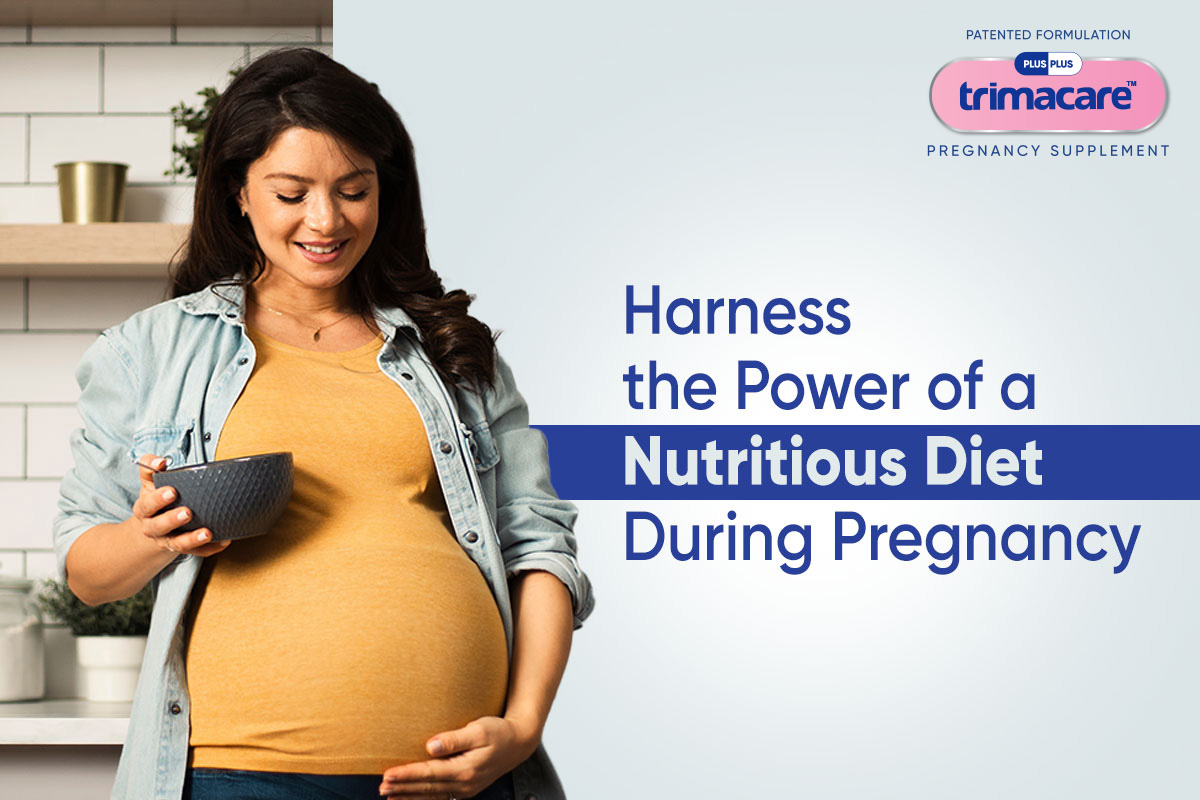Every day, roughly 300 additional calories are required to support a healthy pregnancy. A diet rich in protein, vegetables, fruits, and whole grains can provide these calories. A nutritious, balanced pregnancy diet can help to reduce side effects, such as nausea and constipation.
Essential nutrients to focus on during pregnancy
It’s crucial to maintain a well-balanced diet during pregnancy that provides all the essential nutrients necessary for the growth and development of the mother and the baby. Some key nutrients are as follows:
Folic Acid: Folic acid is essential for early foetal development and helps prevent neural tube defects. It can be found in leafy green vegetables, legumes, fortified cereals, and citrus fruits. It’s also recommended to take a folic acid supplement before and during early pregnancy.
Iron: Iron is essential for the production of red blood cells and to accommodate the higher blood volume required during pregnancy. Excellent sources of iron comprise lean meats, poultry, fish, legumes, fortified cereals, and leafy green vegetables. To improve iron absorption, it is beneficial to include vitamin C-rich foods in the diet, like citrus fruits or bell peppers.
Calcium: Calcium is essential for the development of teeth and bones of the baby. Calcium can be obtained from dairy products, fortified plant-based milk, leafy green vegetables, and calcium-fortified foods like tofu or orange juice.
Protein: Protein helps in the development of the tissues in a baby’s body. Good sources of protein include lean meats, poultry, fish, eggs, legumes, nuts, seeds, and dairy products or plant-based alternatives.
Omega-3 Fatty Acids: Omega-3 fatty acids, particularly DHA, support foetal brain and eye development. They can be found in fatty fish (low in mercury), such as salmon, mackerel, and sardines. Other Omega 3 sources are chia seeds, flaxseeds, and walnuts. Omega-3 supplements for pregnant women are specifically formulated can also be considered.
Vitamin D: Vitamin D is essential for calcium absorption and healthy bones of the baby. It can be obtained from sunlight exposure (limited during pregnancy), fortified dairy products, fatty fish, and vitamin D supplements recommended by your doctor.
Vitamin C: Vitamin C strengthens the immune system and improves iron absorption. Citrus fruits, strawberries, kiwis, tomatoes, bell peppers, and leafy green vegetables are good sources of vitamin C.
Fibre: Adequate fibre intake helps prevent constipation, a common issue during pregnancy. Whole grains, fruits, vegetables, legumes, and nuts are all excellent sources of fibre.
Water: Staying hydrated is essential during pregnancy. Drink at least 8-10 glasses of water every day and increase water intake if experiencing excessive thirst, hot weather, or physical activity.
Benefits of Trimacare – India’s best prenatal supplements for pregnancy
Many pregnant women find it challenging to get enough folic acid, iron, and calcium in their diets, particularly if they experience morning sickness. However, eating meals that are well-balanced is the greatest approach to ensure you get the vitamins and minerals you need. You can take prenatal vitamins as a supplement. Prenatal multivitamins are essential for the development of a baby’s brain and organs. Pregnant women who take prenatal pills can also have less complicated pregnancies.
In addition to a healthy diet, Trimacare prenatal vitamins for women can offer folic acid, iron, calcium, and other essential nutrients during pregnancy. Trimacare is a single-pill solution providing 20+ essential nutrients that are required throughout pregnancy.
By prioritizing nutrients like folic acid, iron, calcium, omega-3 fatty acids, and others, you can lay a solid foundation for your baby’s growth and development. With a well-balanced diet that incorporates these essential nutrients, you can experience a healthy and thriving pregnancy.
Frequently Asked Questions:
1. What are some essential nutrients to focus on during pregnancy?
Focusing on essential nutrients like folate, iron, calcium, omega-3 fatty acids, and protein during pregnancy is crucial for both the baby’s healthy development and the mother’s overall well-being.
2. Why is folate important during pregnancy?
Preventing neural tube defects in the developing baby, such as spina bifida, is why folate—also known as folic acid when synthesized—is essential during pregnancy. It additionally upholds the development of red platelets and DNA combination.
3. How does iron benefit pregnant women?
Because it aids in the production of hemoglobin, which carries oxygen to both the mother and the unborn child, iron is necessary for pregnant women. Iron deficiency anemia, a common pregnancy condition, can be avoided with adequate iron intake.
4. What role does calcium play in a pregnancy diet?
Calcium is necessary for the baby to grow strong bones and teeth. It also helps both the mother and the baby’s heart, muscles, and nerves work properly.
5. Why are omega-3 fatty acids important for pregnant women?
Omega-3 fatty acids, particularly DHA (docosahexaenoic acid), are necessary for the brain and eye development of a baby. They may also assist in preventing preterm labor and support the cardiovascular health of the mother.
A Certified Nutritionist with a rich healthcare background in health journalism, the author has immense experience in curating reader-friendly, engaging, and informative healthcare blogs to empower readers to make informed pregnancy-related decisions.













